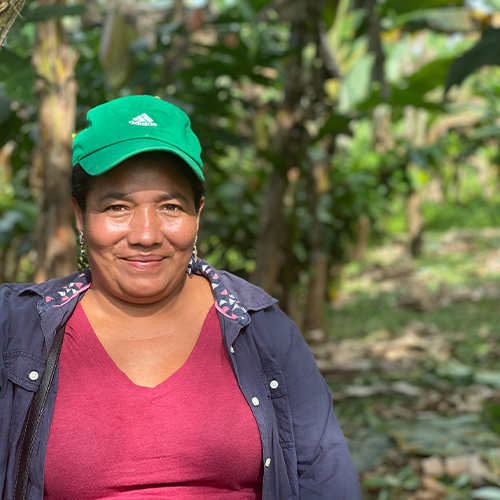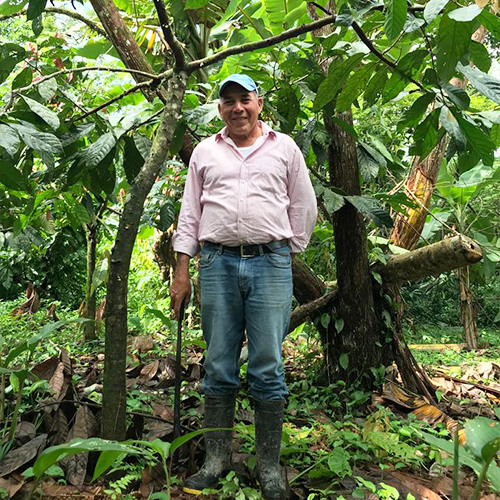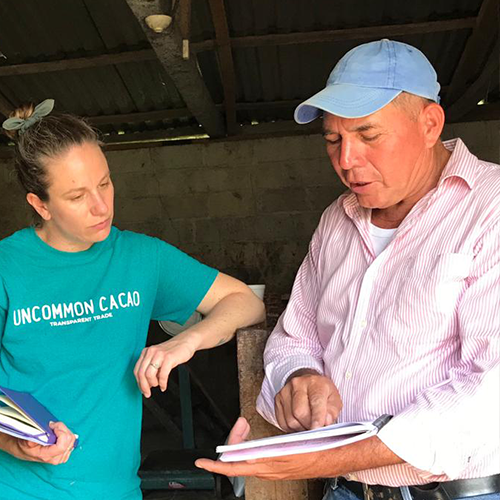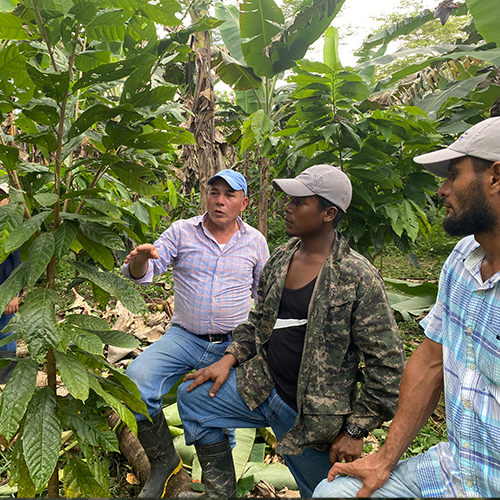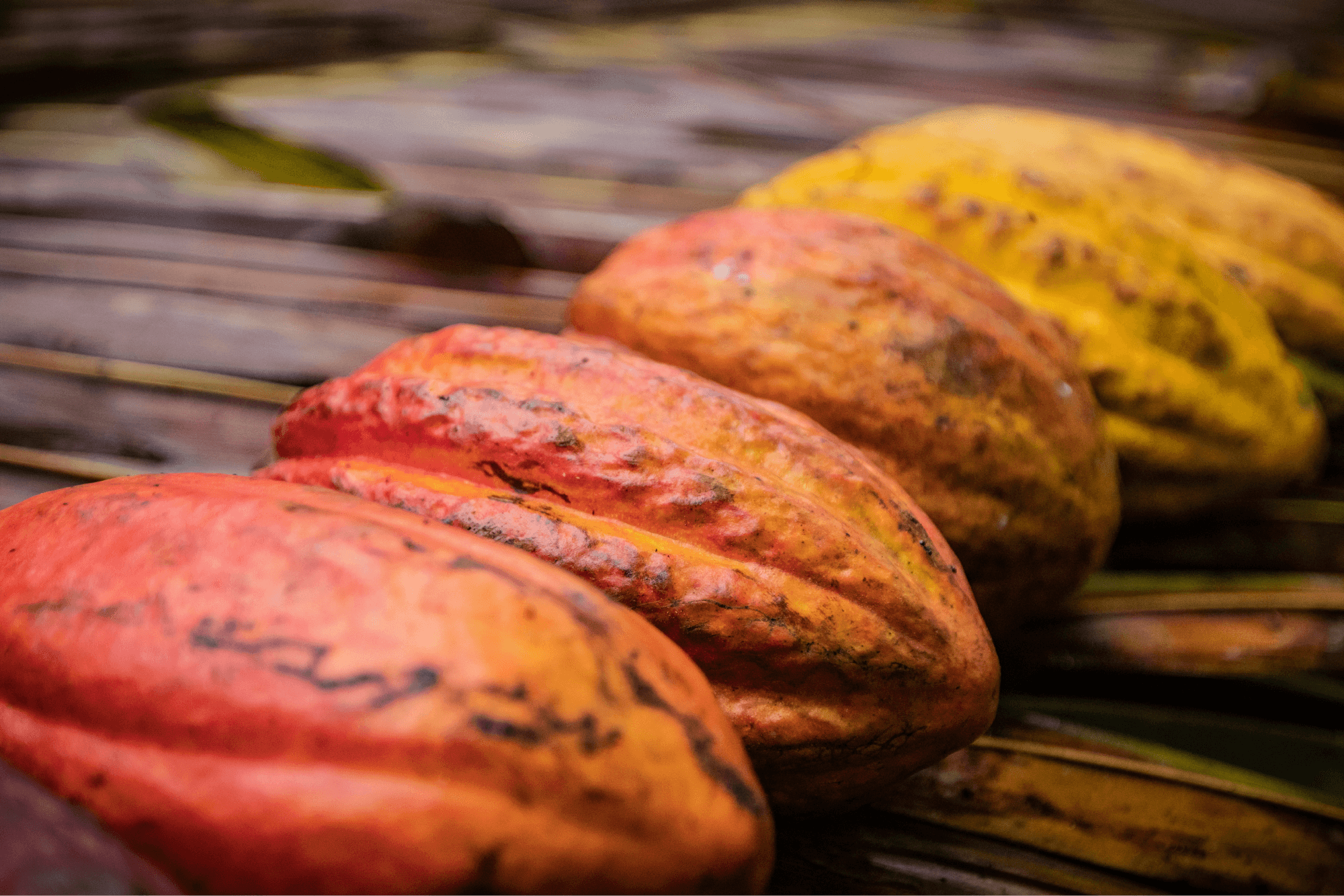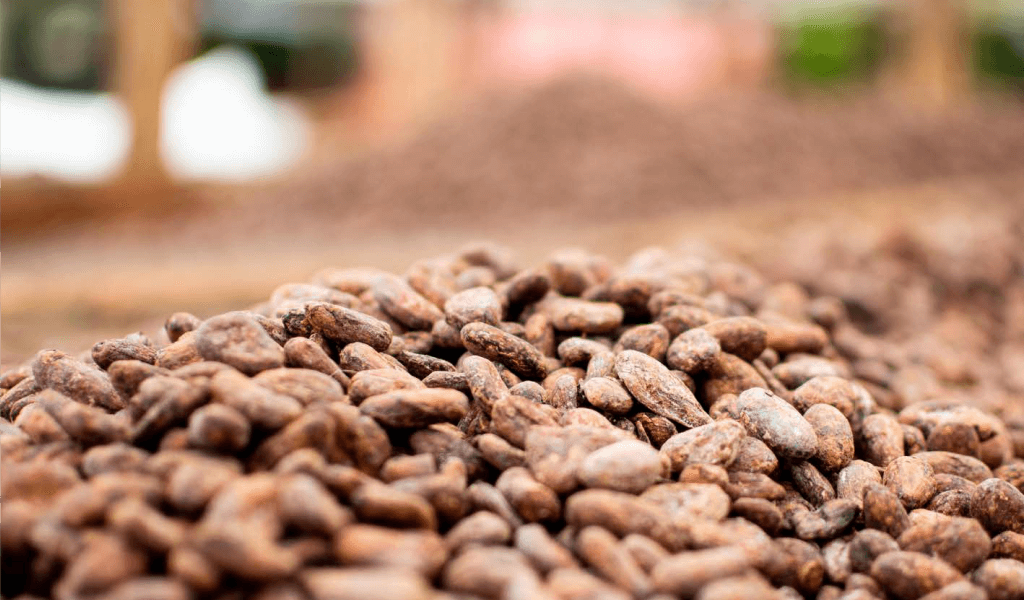Honduras
MISKITO
Earthy, deep fudge cocoa produced by indigenous communities in remote eastern Honduras.
2022 Data - Product
Quality: Ultra Premium
Flavor: Fudge, Butter Cookie, Peanut
Fermentations Style: Box
Drying Style: Raised beds with a roof
Quality Practices: Temperature monitoring during fermentation & cut tests during fermentation
Hand Sorting: Yes
2022 Data - Planet
Crops that are used for intercropping: Beans, corn, plantain, avocado, guava, orange, lemon & rambutan
Environmental practices: Intercropping of fruit and shade trees, organic production practices/ zero use of agrochemicals
Organic hectares cultivated: 78
Average percent of shade of cacao farms: 20%
Distance of producer to facility (km): 5
Distance to port (km): 721
Ocean freight CO2kgs per MT (US): 100
2022 Data - People
Community-focused initiatives: Together with the municipality, support to provide egg-laying hens and delivery of bean and corn seed to 50 producers
Trainings conducted: Farm productivity & ecological practices
Producers purchased from: 80
Female producers: 55
Producers under 35 y/o: 8
Total # of producers trained: 30
Total # of female producers trained: 12
Total # of producers under 35y/o trained: 4
Full time employees: 3
Full time female employees: 1
Part time employees: 2
Average farm size (ha): 1
Average sales per producer (dry kg): 90
Average annual cacao revenue per producer: $1,174
Centralized Fermentation located in La Mosquitia forest, 22,00 km stretching across of dense jungle in northeastern Honduras.
These forests are home to indigenous Miskitu and Tawahka communities who have been living in harmony with the biodiverse jungle around them for centuries. The Miskitu and Tawahka are ethnically distinct from the Maya, and have primarily lived from fishing in the Rio Patuca and small-scale cultivation of crops like yuca and rice. Small numbers of cacao trees, originally brought in to the region through trade with other indigenous communities, have grown wild in these forests, harvested sporadically by the Miskitu and Tawahka over the years, but cacao had not been a primary source of food or income for the communities – until recently. Over the last 15 years, government and private-sector programs have expanded cacao
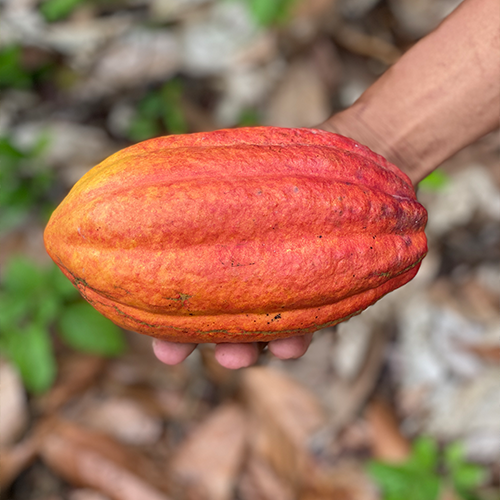
TERROIR
This forest is one of the last remaining conservation strongholds in Central America for threatened iconic species like the Jaguar, the Scarlet Macaw and Great Green Macaws, and the White-lipped Peccary.
The unique post-harvest processing approach implemented by Florentino Portales has caused many chocolate makers who taste this cacao to fall in love. It is deeply, richly chocolatey, without the fruit acidity common to many other Latin American cacao profiles.
Centralized Fermentation located in La Mosquitia forest, 22,00 km stretching across of dense jungle in northeastern Honduras.
These forests are home to indigenous Miskitu and Tawahka communities who have been living in harmony with the biodiverse jungle around them for centuries. The Miskitu and Tawahka are ethnically distinct from the Maya, and have primarily lived from fishing in the Rio Patuca and small-scale cultivation of crops like yuca and rice. Small numbers of cacao trees, originally brought in to the region through trade with other indigenous communities, have grown wild in these forests, harvested sporadically by the Miskitu and Tawahka over the years, but cacao had not been a primary source of food or income for the communities – until recently. Over the last 15 years, government and private-sector programs have expanded cacao

TERROIR
This forest is one of the last remaining conservation strongholds in Central America for threatened iconic species like the Jaguar, the Scarlet Macaw and Great Green Macaws, and the White-lipped Peccary.
The unique post-harvest processing approach implemented by Florentino Portales has caused many chocolate makers who taste this cacao to fall in love. It is deeply, richly chocolatey, without the fruit acidity common to many other Latin American cacao profiles.
Samples are only available from the USA
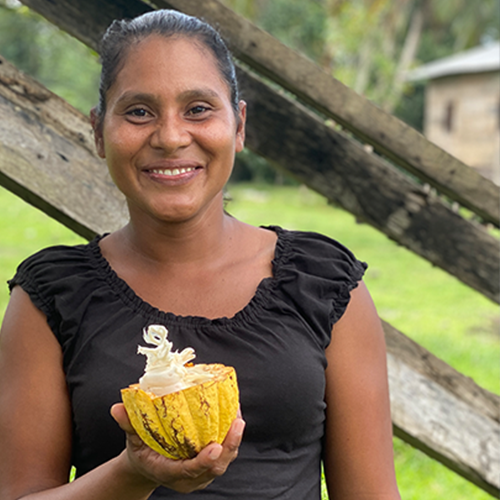
Notable Awards
2021 Silver
Academy of Chocolate
Pictured is Argentina Cruz López holding a freshly opened cacao pod

